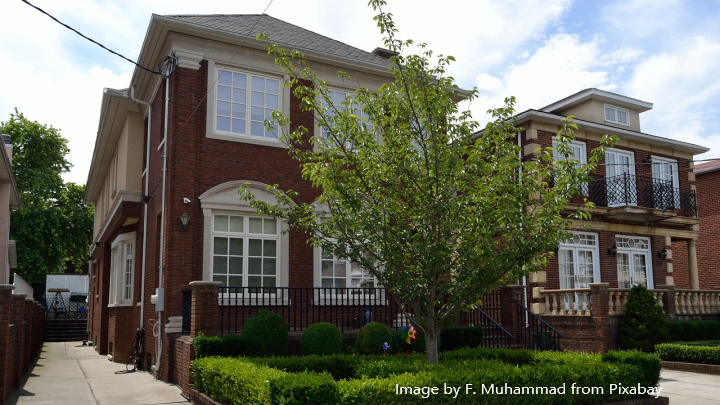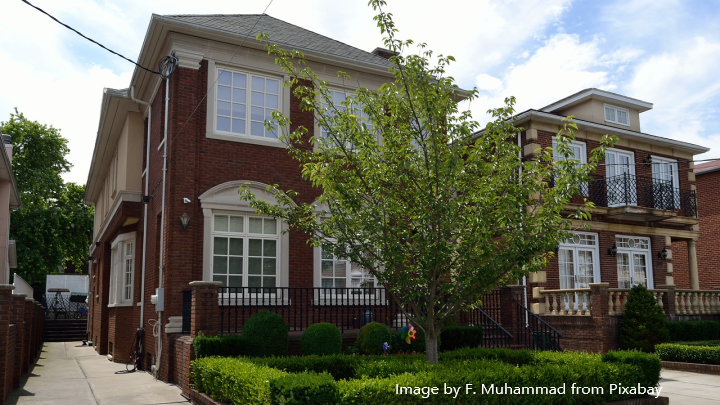My wife, Patty, loves to watch HGTV. One category of shows on this network is flipping houses. As I have watched these programs with her, I have noticed that there appears to be two schools of thought on remodeling. One is to make the house look good so that its selling price is greater than the purchase price. The other is to make the house better so that it is worth more than what it originally sold for. The first method is about cosmetics – making the house appear newer. The second is about renovation – actually making the house better.
I don’t know about you, but for me, while looks are important, I’d rather have a solid and secure house. Consider a tale of two houses. In the first house, a contractor applies two coats of primer over a water spot so the wall looks pristine. In the bathroom, the same contractor replaces the old fixtures with new fixtures for a more updated appearance. In the second house, a different contractor begins by finding the source of the leak before adding new drywall and applying paint. Moving to the bathroom, this same contractor replaces the old plumbing before changing the fixtures. Which house would you rather purchase?
I would argue the lectionary passage from Nehemiah 8 brings into focus the difference between cosmetic revision and structural renovation from a spiritual perspective. By the seventh chapter of Nehemiah, the 2 ½ miles of wall surrounding Jerusalem had been rebuilt and the gates reinforced. The outline of the city was taking shape. A community could be established with the city as the center of its strength and security. By all appearances, things were great. Yet, the book of Nehemiah is barely one-half complete.
While the cosmetics of the community were looking good, something of deeper significance was necessary. So Nehemiah turns to a deeper renovation project – the renovation of the hearts of the people. To do this, he asks the scribe Ezra to read from the Book of the Law. The goal was not simply to create a civic life, but covenantal living. The vision for the returning exiles was a community living faithfully in the will of God. After all, the pre-exilic prophets did not link the capture of the kingdoms of Israel and Judah, the destruction of the temple and the exile of the people to the lack of adequate defenses or a weak military. Rather, they claimed that a lack of true piety, a religiosity of show rather than deep faithfulness and a lack of concern for the marginalized was the root cause of the subjugation of the Jewish people. Thus, the only way of securing the well-being of the reconstituted community in and around Jerusalem was to renovate their spiritual lives.
The process of sanctification is an invitation to continually renovate our spiritual and communal life in deep and transformative ways. It’s not just about how we act, but what we believe. It’s not just about cosmetics, it is about a change in our hearts and spirits. It’s not just about how we look, but about who we are. Our goal should not be merely to seem better, but to actually be better. Personally, I don’t want to look more compassionate, I want to be more compassionate. I don’t want to appear more holy, I want to be more holy. I don’t want a world that looks more peaceful, I want a world that is more peaceful.
Practically, this requires that we open ourselves to the life-changing call of God. It means that we not only honor Martin Luther King, Jr. with a holiday, but we truly hear the challenge to invest ourselves in racial equity and just. It means that hear anew in the rites of the church – baptisms, ordinations and weddings – the vows that we previously have made. It’s not enough simply to design meaningful worship or participate in these corporate covenants. Rather, we can embrace them as sacred opportunities for each of us to reaffirm our commitments to the God who calls to us in life.
In congregational life, this means that we need to ask deep and structural questions. Our goal should not be simply to reconstitute what was being done prior to the pandemic. Granted, it might look good on the outside. However, the question is whether it actually is good. Might there be changes that enable us to offer deeper disciple opportunities, a greater reach into our community or more profound encounter with the living God.
One of the shows that Patty enjoys is called, “Good Bones.” The gist of the program is that a home is renovated from a good foundation in a way that is both beautiful and lasting. It seems that Nehemiah invites the exiles of Israel and all people of faith, to make sure we have good spiritual bones, so that we can bring forth spiritual beauty in our lives and in our world.
May God’s grace help us in renovation!
If you would like to view past editions of Moments with Mike, follow this link: https://corridordistrictnc.org/category/from-the-ds/


